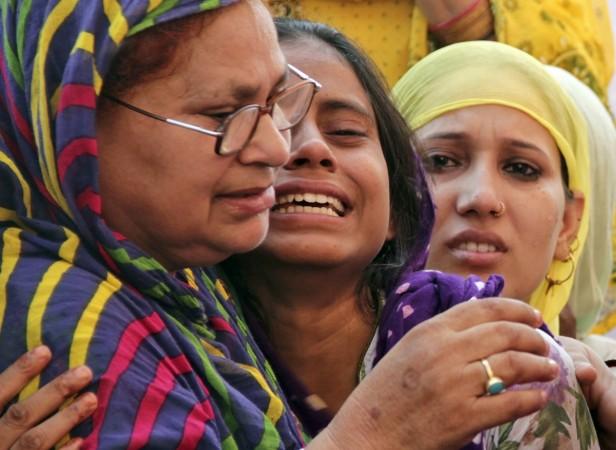
The past year in India was marred by communal violence and clamping down of activists and human rights defenders with laws that "did not meet international standards on freedom of expression," the Amnesty International has said in its latest report.
Citing a global assault on people's basic freedoms, the human rights group said in its global report for 2015-2016 that "many governments brazenly breaking international law and deliberately undermining institutions meant to protect people's rights." In its India-specific report, the group said Indian authorities "failed to prevent hundreds of incidents of communal violence across the country," while some politicians "contributed to religious tensions by making speeches justifying discrimination and violence."
"There has been an increase in religious tensions and a sense of insecurity reported by religious minorities, particularly Muslim and Christian communities. Worryingly, members of the government have in cases contributed to these tensions through speeches justifying discrimination and violence," Aakar Patel, executive director of Amnesty India, told International Business Times India edition via an email.
Amnesty also accused India of taking steps to "repress civil society organisations" and to "harass NGOs and activists," citing the government's actions against Greenpeace India.
"The government has shown a great deal of suspicion towards organisations who have been critical of its policies. It has used the Foreign Contribution (Regulation) Act (FCRA) -- much like earlier governments -- as a political tool to harass NGOs and activists who have opposed it, for example, Greenpeace India and Teesta Setalvad," Patel told IBTimes India.
"NGOs may of course be required to be more transparent and accountable about their activities and their sources of funding. But procedures aimed at ensuring NGO transparency must not be used as a pretext to undermine the credibility of organisations or impede their ability to obtain foreign funding for legitimate work," he added.
The report also mentioned the mob lynching of Mohammed Akhlaq in Dadri, Uttar Pradesh, and of three other Muslims last year, over rumours of eating or transporting beef, as well as the killing of Kannada writer MM Kalburgi. The deaths, believed to have been committed by right-wing Hindutva groups, had sparked the "intolerance" debate in the country, which saw scores of writers, activists and scientists returning their national awards.
However, despite the bleak picture, Patel highlighted certain positives for human rights in India.
"What is heartening is that there has been opposition to the erosion of rights. The widespread outrage around incidents of religious intolerance, a Supreme Court ruling striking down an oppressive law on free speech online, the many public protests against ill-conceived reforms to land acquisition laws -- these offer hope that 2016 can be a better year for human rights in India," Patel said.
Patel referred to the Supreme Court's order last year to strike down Section 66A of the Information Technology Act, which had often been used to attack free speech on the Internet.

















